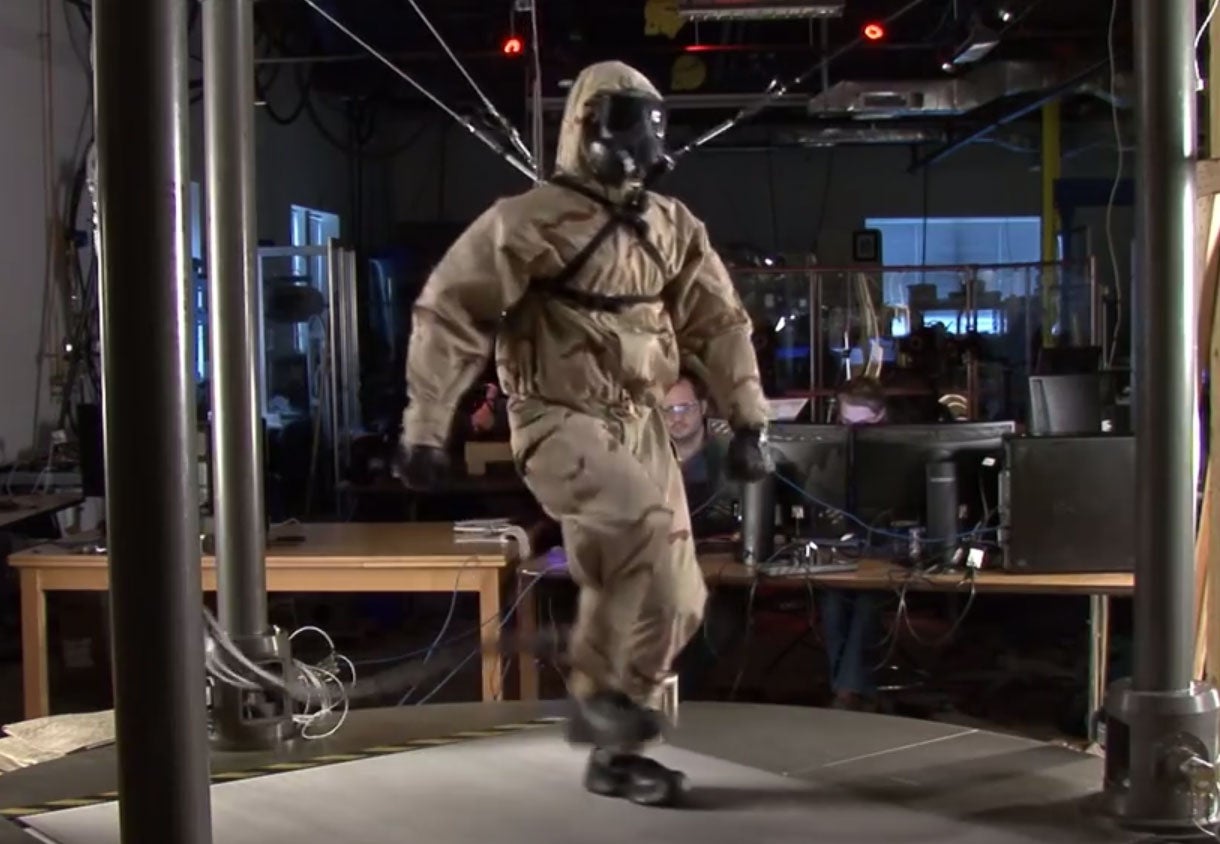Google search and destroy: The internet giant (motto: 'Don't be evil') has bought a pioneer of scary robot animals. Can its ethics survive?

Big Dog is capable of many things of interest to its new owners at Google. What remains to be seen is whether the quadruped robot’s ability to pick up a breeze block and hurl it across a warehouse with impressive dexterity and speed is among them.
The computer search giant has completed the purchase of Boston Dynamics, the maker of a cutting-edge menagerie of walking and crawling robots including Big Dog, which counts America’s Department of Defense (DoD) among its major sources of income.
The robotics firm is the eighth company in the same field to be snapped up by Google in the last six months under a project headed by Andy Rubin, the executive responsible for turning Android into the world’s most widely used smartphone software and whose first love is robots. Mr Rubin, an engineer by training, last week used Twitter to declare that “The future is looking awesome!”.
But what is as yet unclear is just to what use Google, whose motto is famously “Don’t be evil”, plans to put its new stable of walking, sprinting and rock-throwing machines.
Boston Dynamics has won contracts worth $140m (£86m) since 2000 from the DoD and its agencies. The company boasts that it advises and assists the “US Army, Navy and Marine Corps” on developing “the most advanced robots on earth”. By comparison, Google’s income from defence work over the same period was $300,000.
Experts and campaigners yesterday voiced concern that despite Google’s insistence that it does not intend to become a defence contractor, the acquisition of a company with established links to the military might make such work hard to resist in future.
With inventions such as Big Dog, which is primarily designed to carry loads over rough terrain and has the uncanny ability to recover from a human kick, Boston Dynamics could move into the sphere of transporting weaponry rather than producing it. Professor Noel Sharkey, the leading artificial intelligence and robotics expert, based at the University of Sheffield, told The Independent: “I would like to think that Google will actually use the advanced technology to build an astonishing civil robot – maybe one that can deliver parcels or help in the home. But the multi-million dollar lure of military contracts may push them into the dark side. Let us hope not.”
The Boston Dynamics deal, for an undisclosed sum, brought inevitable – if overblown – comparisons between Google and Skynet, the rogue computer system which manages to wipe out much of humanity in the Terminator film series. The robotics company has blazed a trail in producing some extraordinary machines capable of operating in harsh environments, including the Cheetah, which can run at 29mph – faster than Usain Bolt, and Atlas, a humanoid robot built under a $10.8m deal with the Pentagon’s Defence Advanced Research Projects Agency.
But rather than hunting down hapless homo sapiens for some sort of robotic genocide, the maker of Atlas and its stablemates insists they are designed to help humanity out of self-inflicted disasters such as the Fukushima nuclear meltdown by working in environments where people would perish.
Dr Marc Raibert, a former professor at the Massachusetts Institute of Technology who became fascinated with re-creating animal biology in mechanical form and founded Boston Dynamics, has insisted his company does not exist to be a military contractor and is motivated by advancing robotics. For his part, Mr Rubin has described his project as a “moonshot” – the term Google applies to its slightly more outlandish schemes, such as self-driving cars and using a network of blimps to bounce internet signals to remote regions. But while a world of autonomous cars remains some way off, it is likely Google is expecting a quicker return on its robotic investments. Amazon has already spent nearly £500m on automating its warehouses and announced earlier this month – amid a lot of scepticism about the feasibility of such of a scheme – that it is developing delivery drones designed to drop a package on doorsteps for use within the next five years.
Amid such accelerating interest in the potential of what Mr Rubin has described as computers that are “starting to sprout legs”, it is likely that Google will focus its attentions on manufacturing and logistic, with its first products ready within several years. While it is unclear is whether the Google robotics venture will sail forth under the name of the mother ship or be hived off as a separate subsidiary, the pattern of spotting an everyday need – such as internet search – and expanding dynamically to fulfil it may sound familiar.
Mr Rubin told the New York Times: “I feel with robotics it’s a green field. We’re building hardware, we’re building software. We’re building systems, so one team will be able to understand the whole stack.”
The question is whether the company avowed to “make money by doing good things” can finesse Big Dog and its brethren sufficiently to assist an old person out shopping or run to a stricken hiker’s aid, rather than launching bits of masonry like a siege engine.
Click here to watch a video gallery of Boston Dynamic's creations
Join our commenting forum
Join thought-provoking conversations, follow other Independent readers and see their replies
Comments
Bookmark popover
Removed from bookmarks